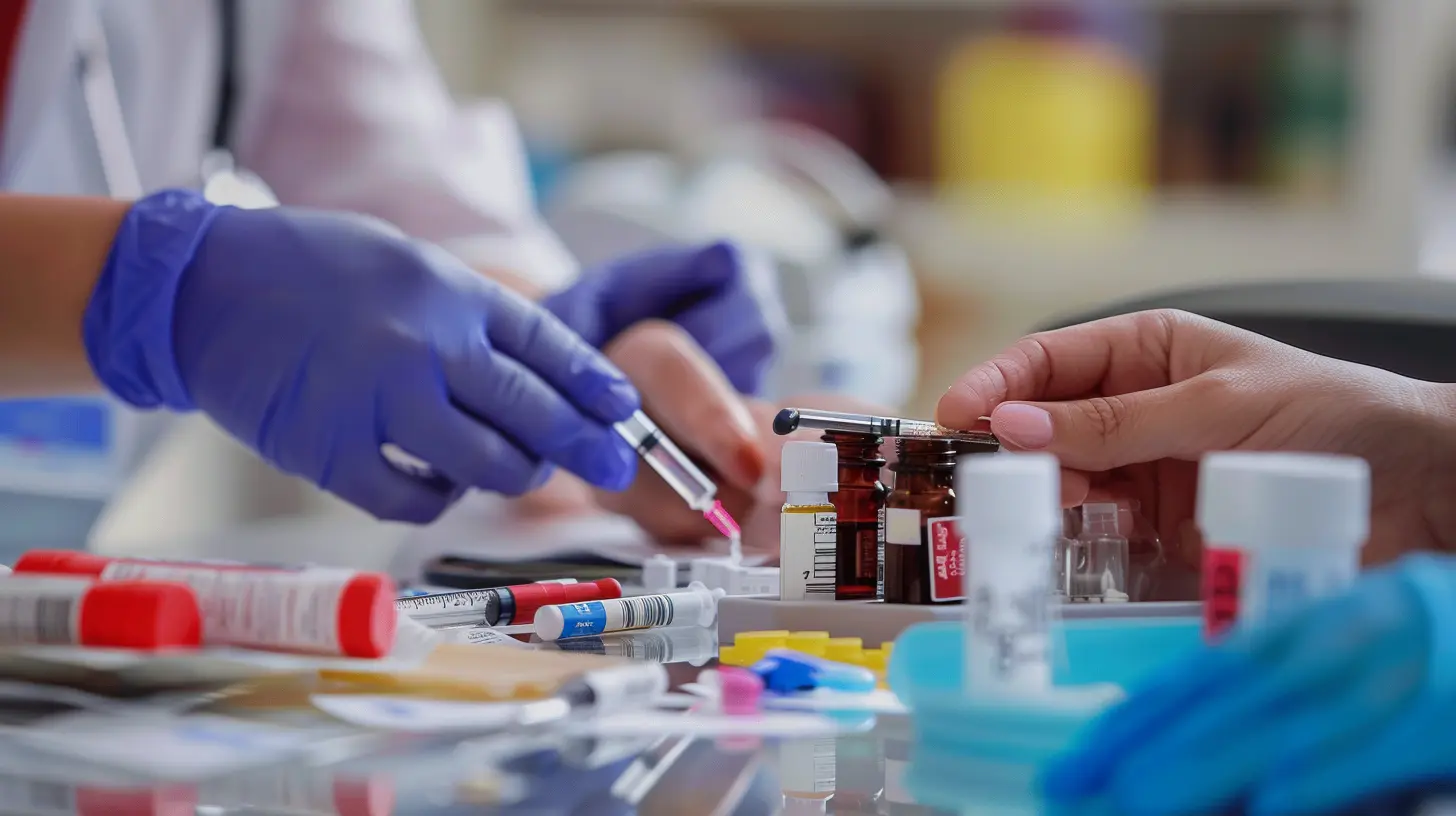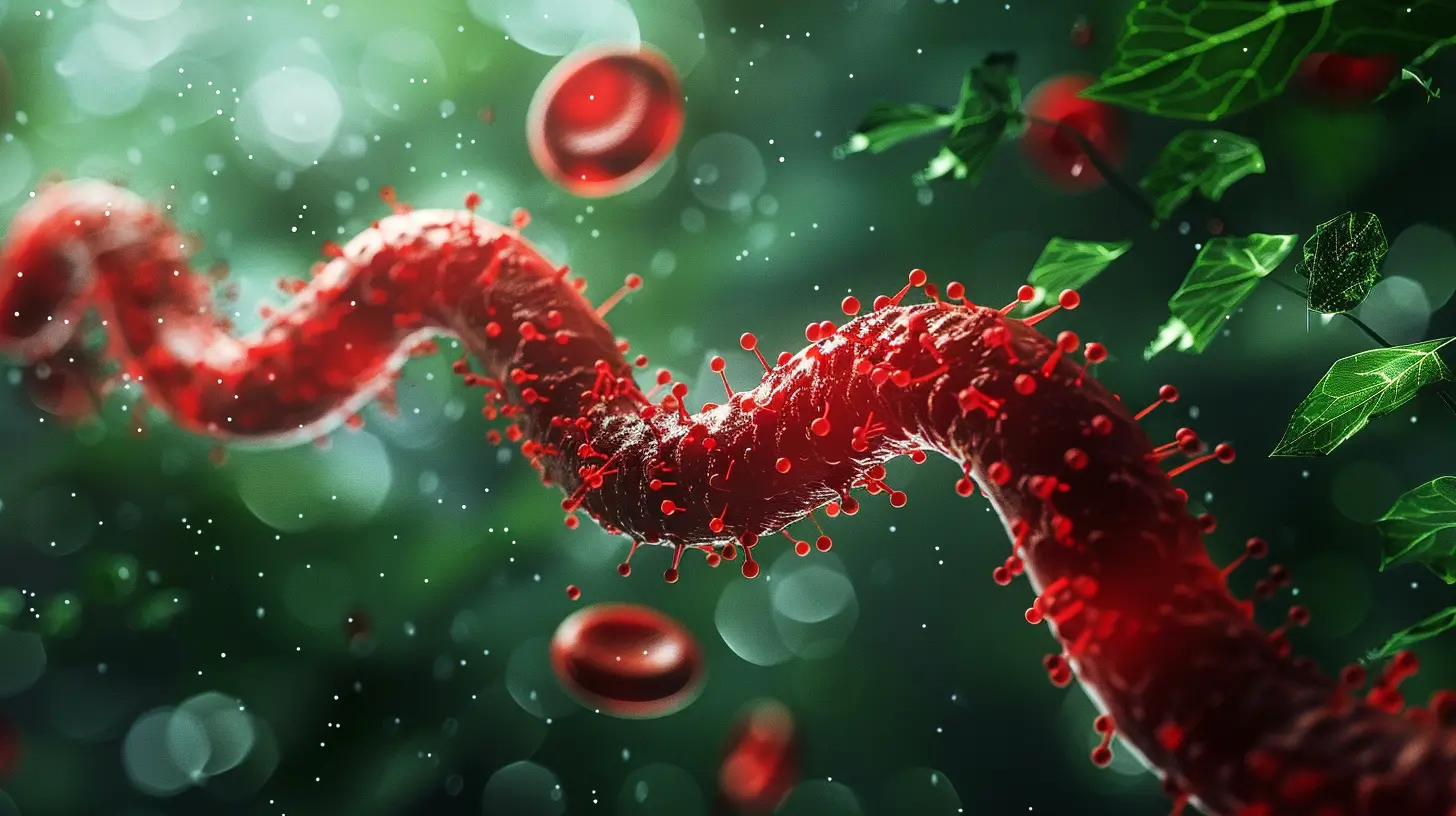Understanding the Early Signs of Diabetes
2 September 2025
Most of us go about our busy lives ignoring the little hints our bodies drop. A little more thirst than usual? Probably just the weather. Feeling tired all the time? Must be stress. But what if these “little” things were actually your body waving red flags, trying to tell you something’s not quite right?
That's exactly what happens with diabetes. It doesn't barge in like an uninvited guest—it tiptoes, dropping subtle clues along the way. And the earlier we spot those clues, the better chance we have to take control of our health.
So, let’s have a real, down-to-earth chat about recognizing the early signs of diabetes before things spiral out of control. This isn’t just another health article—it’s more like a friendly sit-down with someone who genuinely wants to help you look out for yourself and your loved ones.
What Is Diabetes, Really?
Before we dive into the signs, let’s quickly break down what diabetes actually is. No jargon, just the basics. Diabetes is a chronic condition that affects how your body turns food into energy. Normally, our bodies break down carbs into glucose (sugar), which then enters the bloodstream. Your pancreas then steps in to produce insulin, a hormone that helps glucose get into your cells to be used as fuel.With diabetes, either your body doesn’t make enough insulin or it can’t use it effectively. This causes sugar to build up in your blood—which, long-term, can lead to a bunch of serious health problems.
There are mainly two types:
- Type 1 Diabetes: Usually appears in childhood or adolescence, and it’s an autoimmune condition. The body attacks insulin-producing cells.
- Type 2 Diabetes: More common and often linked to lifestyle. It usually develops later in life but is now increasingly seen in younger folks too.
Now, let’s get to the heart of it—the early signs you shouldn't ignore.
1. Constant Thirst and Frequent Urination
Ever find yourself guzzling glass after glass of water, then running to the restroom non-stop? That could be more than just a sign you’re hydrating well.When your blood sugar levels are too high, your kidneys jump into overdrive trying to get rid of the extra sugar. This leads to more urination. And all that fluid loss? Yep, it makes you feel parched.
We’re not talking about the thirst you get after a good workout or spicy meal. This is relentless, can't-quench-it-no-matter-what kind of thirst.
🧠 Heads up: Drinking more doesn’t solve it—it’s your body’s way of dealing with high sugar, not dehydration.
2. Fatigue That Just Won’t Quit
You know that groggy, can’t-keep-your-eyes-open exhaustion that hangs around like a raincloud? Chronic fatigue is one of the sneakiest signs of diabetes.When your body can’t use glucose properly for energy, you feel drained. Basically, your cells are hungry even if you’re eating regular meals.
So, if you feel wiped out all the time—even after a full night’s rest—it’s worth checking your blood sugar levels.
3. Sudden, Unexplained Weight Loss
Wait, isn’t losing weight a good thing?Not always. If pounds are dropping without a change to your diet or exercise routine, it could be a warning sign. With diabetes, your body might start breaking down fat and muscle because it can’t access glucose for energy. That leads to weight loss, even if you’re eating more than usual.
🎯 Pay attention if your clothes feel looser but your appetite is still high. It's a strange combo, and one that shouldn’t be ignored.
4. Blurry Vision
Your eyes might be trying to tell you something too. High blood sugar levels can cause the lenses in your eyes to swell, which messes with your focus.It might come and go, and you may chalk it up to screen time fatigue—but if your vision suddenly turns fuzzy or you have trouble focusing, don’t just grab new glasses. Get your sugar levels checked.
🕵️ Think of it as your eyes whispering a secret message. Are you listening?
5. Slow Healing Wounds and Frequent Infections
Got a paper cut that takes forever to heal? Or keep getting UTIs or skin infections? Your immune system might be lagging due to excess sugar in the blood. High glucose can prevent proper blood flow and affect your body's ability to repair itself.This is especially common around the feet—so if you notice cuts, bruises, or sores that linger, it could be time for a deeper look.
6. Tingling, Numbness, or Pain in the Hands and Feet
Ever feel random tingling or a “pins and needles” sensation in your limbs? That’s not just poor posture.It could be nerve damage caused by high blood sugar—also known as diabetic neuropathy. This usually starts in the extremities and creeps up over time. In the early stages, you may notice numbness or even burning sensations.
💡 If you feel like you're losing touch—literally—with your fingers or toes, don’t brush it off.
7. Increased Hunger (Even After Eating)
We all love a good snack, but if your stomach feels like a bottomless pit, something’s off.With diabetes, your body struggles to move glucose into your cells. So even after a hearty meal, your body still thinks it’s starving because it can't actually use the nutrients.
It’s like being at an all-you-can-eat buffet and still leaving hungry—bizarre, right?
8. Skin Changes and Dark Patches
Noticed weird, velvety dark patches on your neck, underarms, or other folds of skin? That condition is called acanthosis nigricans—and while it might sound scary, it's actually one of the body’s ways of flagging insulin resistance.It’s not painful, just a little discolored—but it’s definitely one of those signs that tend to fly under the radar.
🪞 Next time you're in the mirror, take a moment to check for these subtle clues.
9. Irritability or Mood Swings
When your blood sugar is on a rollercoaster, your mood often tags along for the ride.Feeling angry, anxious, or just not yourself? It might not just be stress or bad luck. Low or high blood sugar levels can mess with your brain chemistry, making you feel off-balance emotionally.
🤯 Think of your brain like a car engine—it needs the right fuel to work well. Feed it poorly, and it sputters.
10. Yeast Infections
Yep, we’re going there. Yeast feeds on sugar—so when there's excess sugar in your system, it creates a party for yeast to thrive. This can lead to recurring infections, especially in warm, moist areas of the body.Both men and women can get them, though they’re more common in women. If you’re getting infections frequently, despite taking good care of yourself, that might be your cue to check your glucose levels.
Why Early Detection Matters
Here’s the raw truth—diabetes doesn’t wait.If left undiagnosed or untreated, high blood sugar can wreak havoc on virtually every organ in your body. We're talking heart disease, kidney failure, vision loss, and even amputations.
But the flip side is empowering: catching diabetes early gives you a head start. With the right mix of medication, lifestyle changes, and support, many people live full, vibrant lives while managing the condition.
So, don’t wait for a “big sign.” Trust your gut, listen to your body, and take action sooner rather than later.
When Should You See a Doctor?
Now, I'm not saying a single symptom means you’ve got diabetes. But if you’re ticking off a few of these signs over weeks or months, it’s time to book an appointment with your doctor.A simple blood test can give you the answers. And if it turns out your blood sugar is high, you’re already ahead of the game by catching it early.
Taking Control: Small Steps, Big Impact
If you’re worried about diabetes—whether for yourself or someone you care about—there’s plenty you can do right now.- Start moving: Even a 20-minute walk after dinner can help regulate your blood sugar.
- Eat smarter: Focus on whole foods—like veggies, fruit, lean proteins, and whole grains.
- Check in regularly: Don’t skip those checkups. Prevention is powerful.
- Stay hydrated: Water helps flush out excess sugar.
- Listen to your body: It's smarter than we give it credit for.
Final Thoughts
Understanding the early signs of diabetes isn't just about memorizing a list—it’s about tuning in. Tuning in to the subtle shifts in how you feel, how much energy you have, and how your body responds day to day.You don't have to be a doctor to know when something feels off. Trust yourself, and don’t wait for a full-blown emergency to take action. Your future self will thank you, big time.
So, whether it's thirst that won’t quit, strange skin patches, or fatigue that’s got you ready for bed by 3 PM—don’t brush it off. Start the conversation, ask the questions, and most importantly: advocate for your health.
You’ve got this.
all images in this post were generated using AI tools
Category:
DiabetesAuthor:

Madeline Howard
Discussion
rate this article
1 comments
Astralis Ellison
Early detection of diabetes can significantly improve health outcomes.
September 12, 2025 at 3:49 AM

Madeline Howard
Absolutely, early detection is crucial as it allows for timely intervention and management, greatly enhancing health outcomes for individuals at risk.


